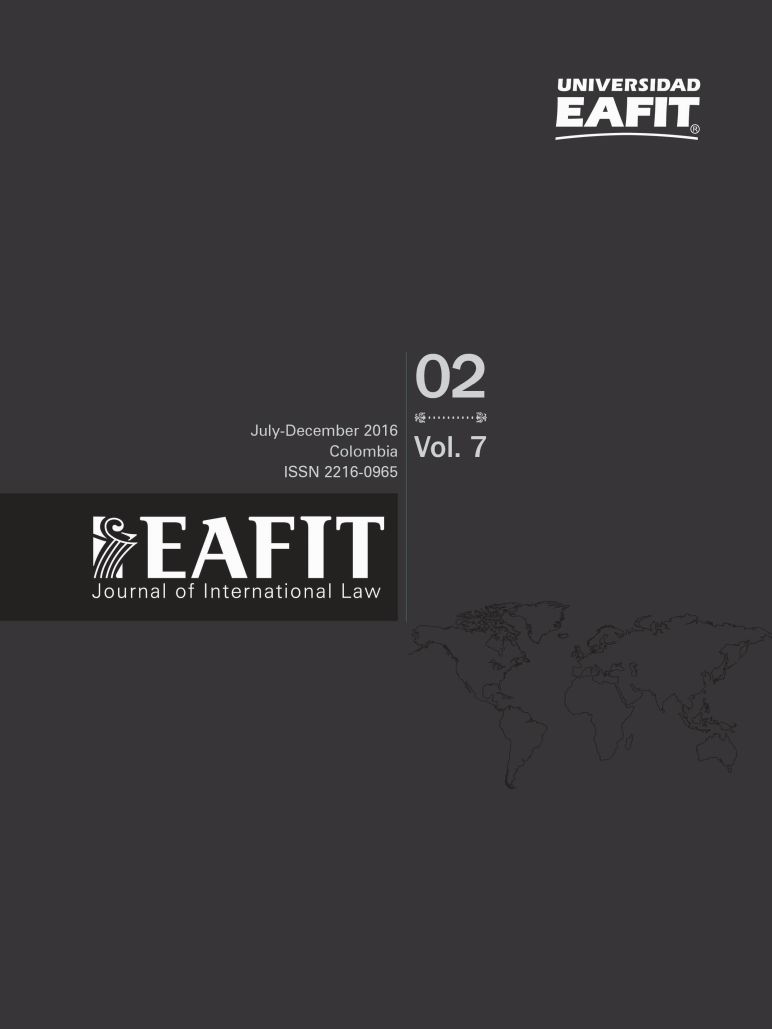Globalization and Economic Development, Colombia as a Study Case
Main Article Content
Keywords
Globalization, Economic Development, Law, Relationship, Colombia
Abstract
The current phenomenon of globalization, understood as the liberalization of the markets, linked with the concept of economic development as a primary objective of the countries, entails the constant change of their internal normativity to increase competitiveness and achieve benefits and opportunities for the individuals. It is needed then, an interdisciplinary work, especially the interaction between economic development and law, to create or modify, both normative and administrative aspects, that leads to the effective economic performance of the countries in a globalized world. However, the existence of the differentiating gap between countries, makes the benefits, as an effect of globalization, not homogeneous, and instead, allows that some countries receive more benefits than the other ones, which in despite their efforts of adaptation of their systems to the global scenario, represent not only an economic delay, but also social. All of this occurs due to the diversity of characteristics and needs of the countries, which must be taken into account for the creation of policies and the adoption of economic models that leads them to economic development. Colombia as a case of study, is a clear example of the effort to adapt its system through the relationship between economic development and law in contexts of globalization, efforts that even though, in some cases has helped the country, in others, has represented negative effects for itself.
Downloads
Download data is not yet available.

